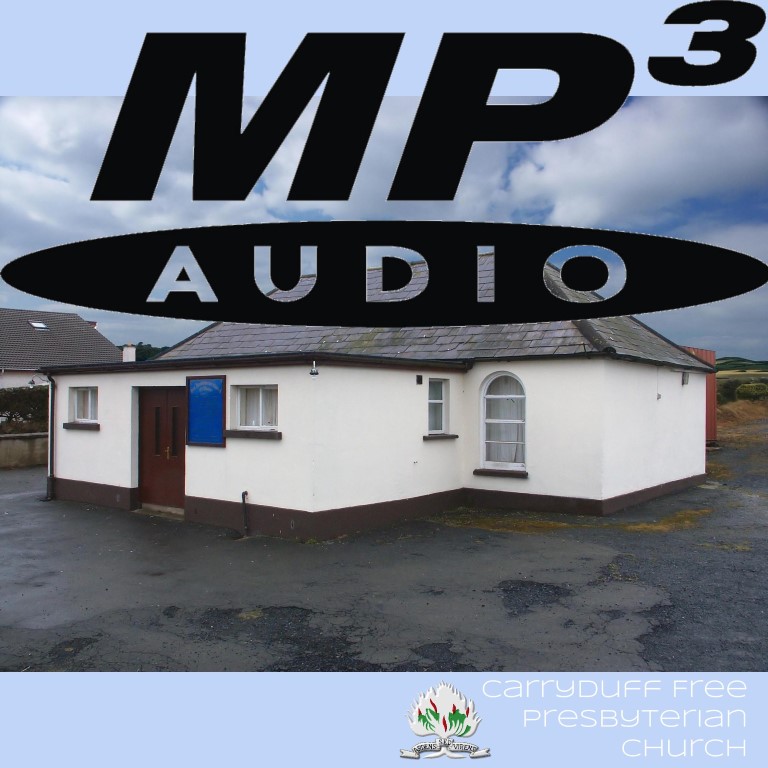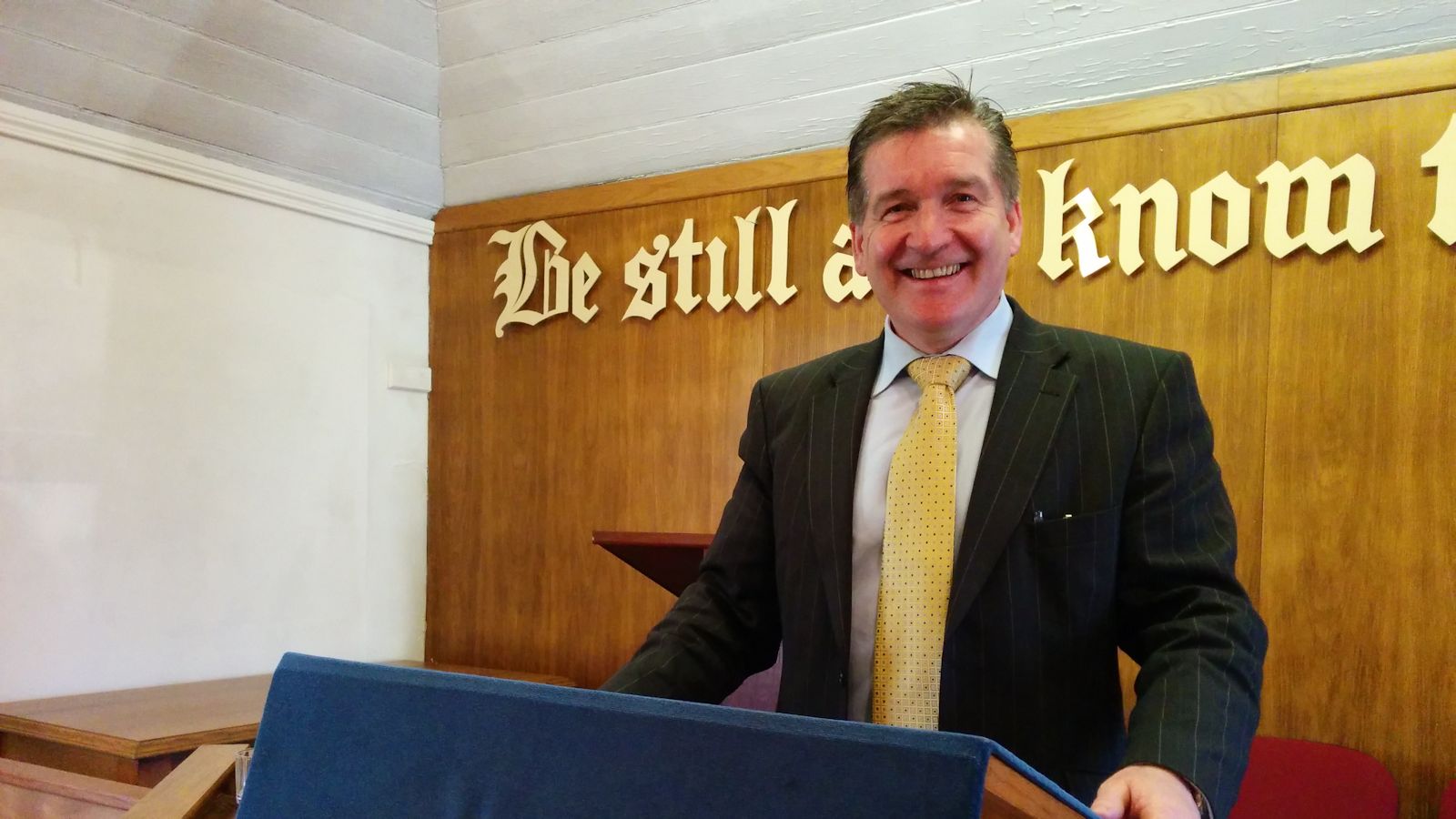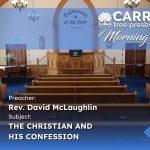Date: SUN 11:30 AM 13th April 2025
Preacher: Rev. David McLaughlin
Bible Reference: 1 John 5:13
These things have I written unto you that believe on the name of the Son of God; that ye may know that ye have eternal life, and that ye may believe on the name of the Son of God.
Sermon Summary: The Christian and the Assurance of Salvation
Text: 1 John 5:13 – “These things have I written unto you that believe on the name of the Son of God; that ye may know that ye have eternal life, and that ye may believe on the name of the Son of God.”
Theme: The sermon, part of a mini-series on the Christian life, focuses on the assurance of salvation, exploring its blessedness, basis, and blueprint, and addressing obstacles that hinder believers from experiencing this certainty.
1. The Blessedness of Assurance of Salvation
The preacher begins by highlighting the comforting and empowering nature of assurance, as stated in 1 John 5:13: “that ye may know that ye have eternal life.” This assurance allows believers to:
- Know they are saved: A true born-again believer has a personal testimony of recognising their sin, repenting, and receiving Jesus Christ by faith alone.
- Be sure of their salvation: There is no room for doubt or uncertainty about their standing with God.
- Feel secure in salvation: Believers can rest confidently in their eternal security in Christ.
The preacher references R.C. Sproul’s categorisation of four classes of people concerning salvation:
- Those who know they are unsaved and thus have no assurance.
- Those who know they are saved and are certain of their salvation, enjoying assurance.
- Those who are saved but lack assurance, often due to doubts, fears, a troubled conscience, or a misunderstanding of salvation’s privileges (e.g., adoption as children of God, as per Romans 8:14-15).
- Those who profess salvation but are not truly saved, living in sin with a false confidence.
The preacher challenges the congregation to reflect on which category they fall into, particularly addressing those who profess faith but are plagued by doubt. He cites examples of doubting God’s Word, sovereignty, love, or provision, which can rob believers of assurance. In contrast, true assurance, as exemplified by the Apostle Paul in 2 Timothy 1:12, stems from unwavering trust in Christ: “I know whom I have believed, and am persuaded that he is able to keep that which I have committed unto him against that day.”
The sermon recounts a personal anecdote where the preacher, while distributing gospel tracts, was challenged by a woman who argued that certainty of salvation is presumptuous. He counters this with biblical truth, asserting that assurance is not based on works, church membership, or human effort but on faith in Christ alone (Ephesians 2:8-9; John 14:6; John 3:16). The preacher respectfully notes that Roman Catholicism, as articulated by the woman, often leaves adherents without true assurance, relying on ongoing works and purgatory rather than Christ’s finished work.
2. The Basis of Assurance of Salvation
The assurance of salvation is grounded in three objective realities, not subjective feelings:
- The Eternal Finished Work of Christ: The preacher emphasises that assurance rests on historical facts, particularly Christ’s atoning death. 1 John 5:6 references Christ coming “by water and blood,” symbolising His baptism (affirming His deity, as God the Father declared, “This is my beloved Son”) and His death on the cross (proven by the blood and water from His side, John 19:34-35). Christ’s cry of “It is finished” (John 19:30) signifies the completion of His redemptive work, which pardons and purifies believers from sin.
- The Eternal Witness of the Spirit: The Holy Spirit, called the “Spirit of truth” (John 14:17; 15:26; 16:13), testifies to Christ’s work, convicting believers of their sin and need for a Saviour, and affirming the truth of their salvation.
- The Eternal Word of the Scriptures: The preacher underscores the reliability of God’s Word, as 1 John 5:13 states, “These things have I written unto you.” The Bible is not a collection of myths but the authoritative, inerrant Word of God, providing a sure foundation for faith. Analogies of a pilot’s licence, a chef’s certification, a doctor’s qualifications, and a marriage certificate illustrate that assurance is based on objective truth, not fleeting emotions.
The preacher stresses that believers must rest in Christ’s finished work, not their own efforts, to experience true assurance. He warns against distractions from false teachers, godless philosophies (e.g., The God Delusion), or unanswered prayers, which can undermine confidence in Christ.
3. The Blueprint for Assurance of Salvation
The sermon outlines practical tests to confirm and strengthen assurance, linking the root of salvation (faith in Christ) to its fruit (evidence in life):
- The Commandment Test (1 John 5:3): True believers demonstrate love for God by keeping His commandments, not as a means of salvation but as evidence of it. This includes loving God and one’s neighbour (Matthew 22:37-40), living in obedience rather than wilful sin.
- The Compassion Test (1 John 3:14): Genuine Christians show love for fellow believers, desiring fellowship, particularly in corporate worship.
- The Confession Test (1 John 5:10): Believers affirm their faith in Christ, not as a one-time act but as a continuous trust (“I have believed, I am believing, I will keep on believing”). This confession reflects a heart transformed by the Spirit.
4. The Blight of Assurance of Salvation
The preacher acknowledges obstacles that hinder assurance:
- Struggles with Sin: Persistent sin can lead to guilt and a loss of communion with God, diminishing the joy of salvation.
- Satan’s Attacks: The devil sows doubt, accusing believers of being unworthy of salvation.
- Hurt from Other Believers: Conflicts within the church can cause disillusionment and weaken assurance.
- A Godless Society: An anti-Christian culture, prevalent in education and media, undermines faith and promotes self-love over love for God.
The preacher encourages believers to combat these challenges by focusing on the blueprint (obedience, love, confession), rooted in the basis (Christ’s work, the Spirit’s witness, God’s Word), to reclaim the blessedness of assurance.
Conclusion
The sermon concludes with a call to self-examination: Do you know you are saved, sure, and secure in Christ? For those lacking assurance, the preacher urges resting in Christ’s finished work and applying the tests of obedience, love, and confession. For the unsaved, he extends an invitation to seek salvation through faith in Christ alone. The sermon, while acknowledging the topic’s depth, aims to provide clarity and encouragement, affirming that believers can have unwavering confidence in their eternal destiny based on the objective truths of Scripture.
Subscribe to the podcast here:
Spotify Podcasts | Apple Podcasts | Pocket Casts
Email | RSS | more information here








